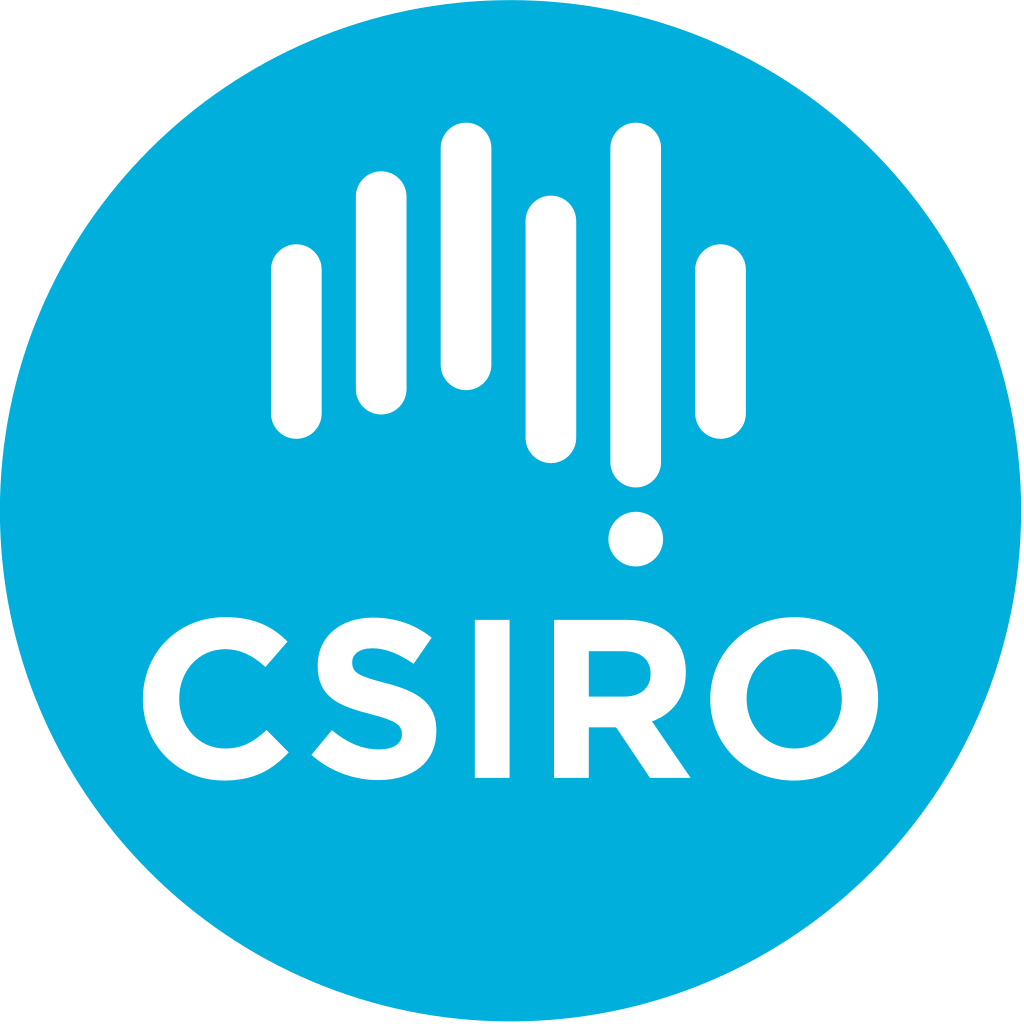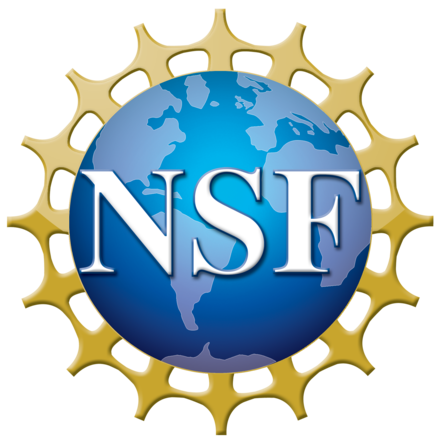Feng Liu (he/him) @ The University of Melbourne
Home
 |
Feng Liu, Ph.D.
Senior Lecturer (US Associate Professor) in Machine Learning,
Visiting Scientist @ Imperfect Information Learning Team,
Visting Fellow @ DeSI Lab,
Address: Room 3317, Level 3, Melbourne Connect (Building 290), |
Opportunities
Long-time Recruitment (PhD): I am always looking for self-motivated PhD (two per semester). Please see this page for recruiting information, and check this page for the school information. Update (Aug. 27, 2025): No PhD position is available before Jan 2028.
Long-time Recruitment (RA): Meanwhile, I am happy to host remote research trainees (paid). You can collaborate with many excellent researchers in the frontier machine learning research areas in our group. Check this page for more information. Update (Aug. 15, 2024): We are actively recruiting RAs. Please send your CV to my email (Gmail).
Project-based Recruitment:
No active recruitment.
Biography
I am a machine learner with research interests in statistical trustworthy machine learning.
I am currently an ARC DECRA Fellow and a Senior Lecturer (US Associate Professor) in Machine Learning at the School of Computing and Information Systems,
The University of Melbourne, Australia. We are also running the Trustworthy Machine Learning and Reasoning (TMLR) Lab where I am one of co-directors (see this page for details).
In addition, I am a Visiting Scientist at RIKEN-AIP, Japan, and a Visting Fellow at DeSI Lab, Australian Artificial Intelligence Institute, University of Technology Sydney. I was the recipient of the Australian Laureate postdoctoral fellowship. I received my Ph.D. degree in computer science at the University of Technology Sydney in 2020, advised by Dist. Prof. Jie Lu and Prof. Guangquan Zhang.
I was a research intern at the RIKEN-AIP, working on the robust domain adaptation project with Prof. Masashi Sugiyama, Dr. Gang Niu and Dr. Bo Han. I visited Gatsby Computational Neuroscience Unit at UCL and worked on the hypothesis testing project with Prof. Arthur Gretton, Dr. Danica J. Sutherland and Dr. Wenkai Xu. I have received the ARC Discovery Early Career Researcher Award, the FEIT Excellence Award in Early Career Research at The University of Melbourne, the Outstanding Paper Award of NeurIPS (2022), the Outstanding Reviewer Award of NeurIPS (2021), the Outstanding Reviewer Award of ICLR (2021), the UTS Best Thesis Award (Dean's list), the UTS-FEIT HDR Research Excellence Award (2019) and the Best Student Paper Award of FUZZ-IEEE (2019). My publications are mainly distributed in high-quality journals or conferences, such as Nature Plants, Nature Communications, JMLR, IEEE-TPAMI, IEEE-TNNLS, IEEE-TFS, NeurIPS, ICML, ICLR, KDD, IJCAI, and AAAI. I have served as area chairs (AC) for ICML, NeurIPS, ICLR, AISTATS, senior program committee (SPC) members for AAAI, IJCAI. I also serve as an Associate Editor for ACM TOPML, Associate Editor for IJMLC, Action Editor for Neural Networks, Action Editor for Transactions on Machine Learning Research.
Research Interests
My general research interest lies in statistically trustworthy machine learning which aims to make current AI systems reliable with theoretical/statistical guarantees. Specifically, current research directions include data-adaptive statistical hypothesis testing (as a basis for theoretical/statistical guarantees), misinformation detection/defense, privacy and copyright protection in AI systems, and efficient post-training paradigm on pre-trained vision models, vision-language models, and large-language models. Detailed topics are as follows.
Data-adaptive Statistical Hypothesis Testing:
Two-sample Testing: Testing if two datasets are drawn from the same distribution.
(Conditional) Independence Testing: Testing if two datasets are independent (on conditions).
Distributional Closeness Testing: Testing if two datasets are statistically close to each other, given a pre-defined discrepancy.
-
Misinformation Detection/Defense:
AI-generated data detection: Detecting AI-generated content.
Defending against Adversarial Attacks: Detecting adversarial attacks (i.e., adversarial attack detection); Training a robust model against future adversarial attacks (i.e., adversarial training); Purifying adversarial inputs.
Being Aware of Out-of-distribution Data: Detecting out-of-distribution data; Training a robust model in the open world (e.g., open-set learning, out-of-distribution generalization).
-
Privacy and Copyright Protection in AI Systems:
Copyright Protection on Training Data and/or Generative Models: Detecting in-directly illegal use of data or models. Ideally, the detection methods can have a controllable false alarm rate.
Data Privacy Protection: Training a discriminative model to ensure that the training data will not be obtained by inverting the model (i.e., defending against model-inversion attacks).
-
Efficient Post-training:
Parameter-efficient Post-training/Finetuning: Post-train or finetune pre-trained models with limited parameters, e.g., model reprogramming, low-rank adaptation, and prompt tuning.
Efficient Black-box Post-training/Finetuning: Post-train or finetune black-box models via inference-only optimization.
Research Highlights
Nov/11/2025: Grateful to receive the 2025 Early Career Researcher Award from Australian Pattern Recognition Society (APRS).
Nov/03/2025: Grateful to receive the Top Area Chair Award of NeurIPS 2025.
Oct/28/2025: Grateful to secure one ARC Discovery Project as a leading investigator. [Announcement]
Oct/25/2025: Congrates Chengyi who received the Google PhD Fellowship in the machine learning track!
Sep/19/2025: Eight papers are accepted by NeurIPS 2025, including one Spotlight on AI-generated video detection. Congrates to the team!
Sep/01/2025: I have successfully confirmed my continuing faculty position (equivalent to passing the tenure track in the US academic system) and been promoted to Senior Lecturer, a tenured faculty position in Australia, similar to US Associate Professor (tenured faculty position in US). Huge thanks to my family, friends, colleagues, co-authors, postdocs, and students for their long-lasting support!!
Aug/16/2025: Will serve as an Area Chair for ICLR 2026.
Aug/15/2025: Will serve as an Area Chair for AISTATS 2026.
July/16/2025: Congrates Zesheng on securing a National Intelligence Postdoctoral Grant!
July/13/2025: Will join the Senior Program Committee for AAAI 2026.
May/15/2025: One paper is accepted by ACL 2025 (Findings). Congrates to the team!
May/12/2025: One paper is accepted by UAI 2025. Congrates to the team!
May/02/2025: Nine papers are accepted by ICML 2025. Congrates to the team!
Apr/29/2025: Our monograph, Trustworthy Machine Learning: From Data to Models (ISBN: 978-1-63828-548-9), is online (see pdf file here), simultaneously published in Foundations and Trends® in Privacy and Security. Congrates to the team!
Apr/05/2025: One paper is selected as CVPR 2025 highlight presentation (acceptance rate < 3.0%). Congrates to the team!
Mar/30/2025: One paper on model-inversion attack is accepted by TPAMI. Congrates to the team!
Mar/04/2025: Grateful to receive the best paper award from AAAI Colorai Workshop for our privacy-preserving low-rank Adaptation (LoRA) work published in AAAI 2025. Also grateful to secure one project from Australia's Economic Accelerator (AEA) Ignite Program, working on the AI-driven wearables for falls prevention.
Feb/17/2025: Will serve as an Area Chair for NeurIPS 2025.
Jan/23/2025: Three papers are accepted by ICLR 2025, including one paper on machine-generated text detection with deep kernel hypothesis testing, and two papers on model reprogramming (one of parameter-efficient fine-tuning methodogies). Congrates to the team!
Dec/19/2024: Grateful to receive the FEIT CIS Excellence Award in Research from the School of Computing and Information Systems at the University of Melbourne.
Nov/28/2024: Grateful to receive the Australasian AI Emerging Research Award from Australian Computer Society.
Nov/22/2024: Will serve as an Area Chair for ICML 2025.
Nov/14/2024: Will serve as an Action Editor for Transactions on Machine Learning Research.
Nov/06/2024: Grateful to receive one ARC Linkage Project. [Announcement]
Oct/24/2024: Grateful to receive the Outstanding Area Chair Award of ACM MM 2024. Welcome to Melbourne!
Oct/21/2024: Our tutorial proposal regarding model reprogramming (efficient fine-tuning) has been accepted by ACML 2024. Welcome to join ACML 2024!
Oct/03/2024: Will serve as an Area Chair for AISTATS 2025.
Sep/26/2024: Five papers are accepted by NeurIPS 2024, and one of them is selected as an oral paper (acceptance rate: 0.39%). Congrates to the team!
Sep/17/2024: Continue to be listed as one of the top 2% of the world’s most cited scientists in 2023, according to the Stanford University Report.
Aug/08/2024: Will serve as an Area Chair for ICLR 2025.
Aug/06/2024: Will serve as a senior program committee member for AAAI 2025.
Jun/13/2024: One paper is selected as ICML 2024 oral presentation (acceptance rate < 1.6%) and another one is selected as ICML 2024 spotlight (acceptance rate < 3.6%). Congrates to the team!
May/30/2024: Will serve as an Area Chair for NeurIPS 2024 Datasets and Benchmarks Track.
May/02/2024: Six papers are accepted by ICML 2024. Congrates to the team!
Apr/25/2024: Will serve as an Area Chair for NeurIPS 2024.
Apr/07/2024: One paper is accepted by JMLR. Congrates to the team!
Jan/23/2024: Will serve as an Area Chair for ICML 2024.
Jan/15/2024: One paper is accepted by ICLR 2024 and is selected as a spotlight paper (acceptance rate < 5.1%). Congrates to the team!
Jan/10/2024: One paper is accepted by Nature Communications.
Nov/27/2023: Grateful to receive the FEIT Excellence Award in Early Career Research at The University of Melbourne.
Oct/25/2023: Our tutorial proposal regarding trustworthy machine learning has been accepted by AAAI 2024. Welcome to join AAAI 2024 at the Vancouver Convention Centre in Vancouver, BC, Canada, February 20 - February 27, 2024!
Oct/04/2023: Grateful to be listed as one of the top 2% of the world’s most cited scientists in 2022, according to the Stanford University Report.
Oct/02/2023: Will serve as an Action Editor for Neural Networks.
Sep/25/2023: Our tutorial proposal regarding trustworthy machine learning has been accepted by ACML 2023. Welcome to join ACML 2023 at the Acıbadem University Conference Center in İstanbul, Turkey, November 11 - 14, 2023!
Sep/22/2023: Four papers are accepted by NeurIPS 2023. Congrats to the team!
Sep/11/2023: Will serve as an Area Chair for ICLR 2024.
Aug/25/2023: Grateful to receive ARC Discovery Early Career Researcher Award (Category: 4611 Machine Learning). [Announcement]
Jul/25/2023: Will serve as an Associate Editor for International Journal of Machine Learning and Cybernetics.
Jul/25/2023: One paper is accepted by Nature Plants.
Jul/24/2023: We will present three papers at ICML 2023 in Hawaii. Two are related to distribution-change detection (OOD detection and adversarial detection), and one is related to model adaptation.
Jul/13/2023: I officially join the School of Computing and Information Systems at The University of Melbourne as an Assistant Professor in Machine Learning (a continuing position).
Jul/10/2023: I will give a Keynote speech at the International Conference on Machine Learning and Cybernetics (ICMLC).
Jun/15/2023: Our paper regarding Responsible AI (RAI) received the ECIS Best RiP Paper Runner-up Award.
May/01/2023: We will present one paper regarding OOD detection at ICLR 2023 in Rwanda.
Mar/14/2023: Our newly proposed journal, ACM Transactions on Probabilistic Machine Learning (ACM TOPML), is officially approved! I will serve as an editor of this journal. Welcome to submit your papers to our journal!
Feb/20/2023: Grateful to secure one project from the NSF-CSIRO Joint Program in Responsible and Ethical AI. [NSF Announcement][CSIRO Announcement]
Dec/02/2022: Will serve as a senior program committee member for IJCAI 2023.
Nov/28/2022: We will present two papers at NeurIPS 2022 in New Orleans. One focuses on the learnability of OOD detection (outstanding paper), and the other uses the reprogramming property of deep neural networks to solve the OOD detection problem (spotlight paper).
Nov/24/2022: Grateful to secure one ARC Discovery Project. [Announcement]
Nov/21/2022: Our paper received the NeurIPS Outstanding Paper Award.
Nov/17/2022: One paper is accepted by Nature Communications.
Research Experience
Senior Lecturer (US Associate Professor) (Aug 2025--now)
- The University of Melbourne, Melbourne, Australia
- A tenured teaching and research position in machine learningLecturer (US Assistant Professor) (May 2022--Aug 2025)
- The University of Melbourne, Melbourne, Australia
- A tenure-track teaching and research position in machine learning and data scienceVisiting Fellow (May 2022--now)
- Australian Artificial Intelligence Institute, UTS, Sydney, Australia
- Collaborating with Dist. Prof. Jie LuVisiting Scientist (July 2021--now)
- Imperfect Information Learning Team,
- RIKEN Center for Advanced Intelligence Project (RIKEN-AIP), Tokyo, Japan
- Collaborating with Prof. Masashi Sugiyama and Dr. Gang NiuAustralian Laureate Posdoc Researcher (May 2020--May 2021)
- Australian Artificial Intelligence Institute, UTS, Sydney, Australia
- Advisor: Dist. Prof. Jie Lu
- Project: Autonomous Transfer LearningVisiting Researcher (August 2019--November 2019)
- Gatsby Computational Neuroscience Unit, UCL, London, UK
- Advisor: Prof. Arthur Gretton
- Collaborators: Dr. Danica J. Sutherland, Dr. Wenkai Xu
- Project: Learning Deep Kernels for Two Sample TestResearch Intern (March 2019--July 2019)
- Imperfect Information Learning Team, RIKEN-AIP, Tokyo, Japan
- Advisor: Prof. Masashi Sugiyama
- Collaborators: Dr. Gang Niu and Dr. Bo Han
- Project: Robust Unsupervised Domain Adaptation
Education
Ph.D. in Computer Science (November 2020)
Faculty of Engineering and Information Technology,
University of Technology Sydney, Sydney, Australia.
Supervised by Dist. Prof. Jie Lu and Prof. Guangquan Zhang


